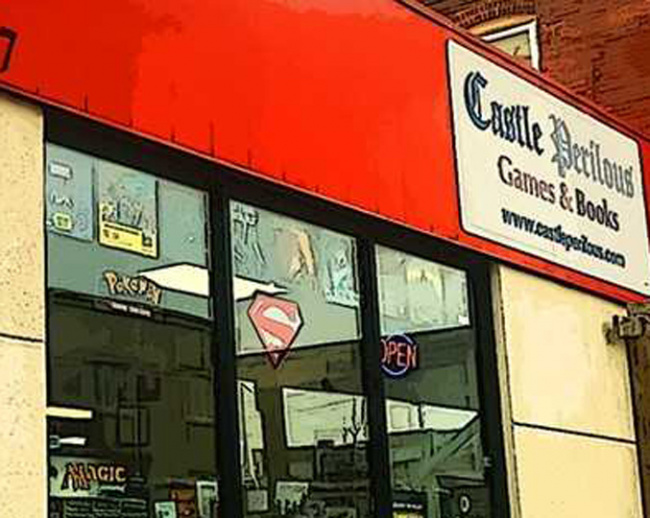Rolling for Initiative is a weekly column by Scott Thorne, PhD, owner of Castle Perilous Games & Books in Carbondale, Illinois and instructor in marketing at Southeast Missouri State University. This week, Thorne discusses why he hesitates to back Kickstarter campaigns and bids Jerry Corrick farewell.
I was slightly bemused to receive an email from a small publisher informing me they had created a retailer level for their new product and asking me to back it on Kickstarter. I was certainly pleased that they thought to offer a retailer level for the release, which although it became common a few years back, some publishers still do not create.
Generally, though, I hesitate to back game Kickstarter campaigns, and almost never back Kickstarter campaigns from comic creators for the following reasons:
- The low hanging fruit is gone. If the creator has a track record of producing quality items and have a strong following on social media, their fans will know first when a new campaign launches and they will support the campaign. Thus, their most avid customers of the company will buy the game directly from the publisher, rather than from us. If a company has a good track record of keeping the product in stock, such as Goodman Games, Troll Lord Games and Kobold Press do, and it has a decent price point and margin, I will often back it just to have it on the shelf, since their products, I have found, have evergreen status. I still regularly reorder Kobold Press’ Tomb of Beasts and Troll Lord Games’ Storyteller’s Thesaurus years after their original publication.
- As for comic publishers, they will usually have a low price point and an even more devoted fan following, meaning they all buy the book when it ships, leaving me with the option of stocking a $6.99 or thereabouts comic, with a profit margin of maybe $3, compared to a margin of $20-$40 on a game. Comics have a short shelf life compared to the long shelf life of most games. Investing in Kickstarting a comic, unless the store really wants to support the creator, is just not worth the return on investment.
- No guarantee of product receipt. As Kickstarter states at the top of the page: “Rewards aren’t guaranteed, but creators must regularly update backers.” Though this is much less of a problem than it was a few years ago, it still is part of Kickstarter’s ecology (see “Kickstarter: Revisiting Its Pros and Cons“). My capital is still too scarce to tie up in untried and low margin products, especially those that I may not receive for months.
I was sorry to read that Jerry Corrick of Atlas Games passed away this past week (see “R.I.P. Jerry Corrick“). I’ve read a lot of tributes to him on Facebook and Twitter over the past couple of days, and one point all of the writers make is that Atlas Games could not have had a better convention and trade show representative than he. I did not know him well, but had spoken with him at the Atlas Games booth at many conventions and trade shows over the years and must agree. Corrick was always outgoing and gregarious anytime I spoke with him. Atlas Games could not have found a better representative for the company and from what I understand, he did a great job as the CFO of the company as well.
Comments? Send them to castleperilousgames@gmail.com
The opinions expressed in this column are solely those of the writer, and do not necessarily reflect the views of the editorial staff of ICv2.com.
Source: ICv2


